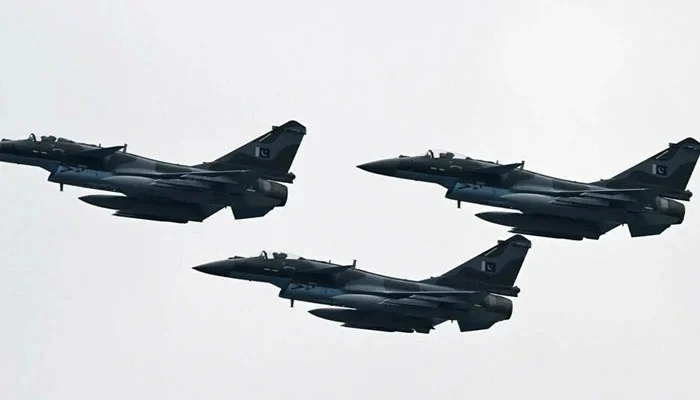WNAM MONITORING: British security and defence analyst Professor Michael Clarke remarked on Saturday that Pakistan may have caught India off guard with the strength of its military hardware and technical capabilities, The News reported, citing Sky News.
In an interview with British news outlet, Clarke stated that India would likely view Pakistan’s display of strength as a sign of risk-taking.
“The Indians might have been surprised by the hardware that the Pakistanis brought to bear,” he said, “because as we’re now discovering they’ve used quite a lot of their Chinese-based technology, and the attention at the moment is focused on the J-10 fighter.”
Clarke added that it appeared one of Pakistan’s J-10 jets may have downed a Rafale, one of the French-made fighter aircraft in India’s arsenal. “And undoubtedly,” he continued, “the Pakistanis have used their HQ-9, anti-aircraft missiles, which again may have been rather effective.”
“So I think the Indians might have been surprised by the technical abilities that Pakistan seems to have absorbed with their Chinese equipment, but they won’t have been surprised by the bellicosity of [Gen Asim] Munir because they rather expected that,” he further added.
He also said that partly, India’s response has been to try to, as it were, teach (Gen) Munir a lesson that they really are prepared to do whatever it takes, and indeed they’ve deployed a carrier battle group of their Western fleet.
“It’s sitting only 300 miles off Karachi, which is a sort of threat to go in for a more general war, unless the Pakistanis found a way of backing down from this position. Unfortunately, the international community has given them a line that they can both top out at.”
He said both sides have agreed to a ceasefire which has been pushed so hard and, to its credit, by the Trump administration and US Secretary of State Marco Rubio. However, he said, they (the US administration) were rather late in getting on this, as this thing had been going on since Tuesday but now it seems their words have made a difference.
US President Donald Trump said on Saturday that India and Pakistan had agreed to a “full and immediate ceasefire” after a fourth day of strikes and counter-strikes against each other’s military installations.
Pakistan’s foreign minister also said both countries had agreed to a ceasefire “with immediate effect” and India’s foreign ministry said it would start at 5pm Indian time (1130 GMT).
The latest escalation in the decades-old Pakistan-India rivalry began on May 7 when at least 31 civilians were killed in an unprovoked Indian cross-border attack. In retaliation, Pakistan downed five IAF fighter jets, including three Rafale, and dozens of drones.
Shortly after the attack on the Pakistani airbases in the wee hours of Saturday, the Pakistan army launched its counter-attack in direct response to continuous provocations by India.
In a major success for the Pakistan Air Force (PAF), hypersonic missiles fired by JF-17 Thunders destroyed India’s S-400 system at Adampur airbase, security sources said. The airbase was also hit during the strike.
The S-400 air defence system is worth around $1.5 billion, considered India’s most advanced air defence shield.


